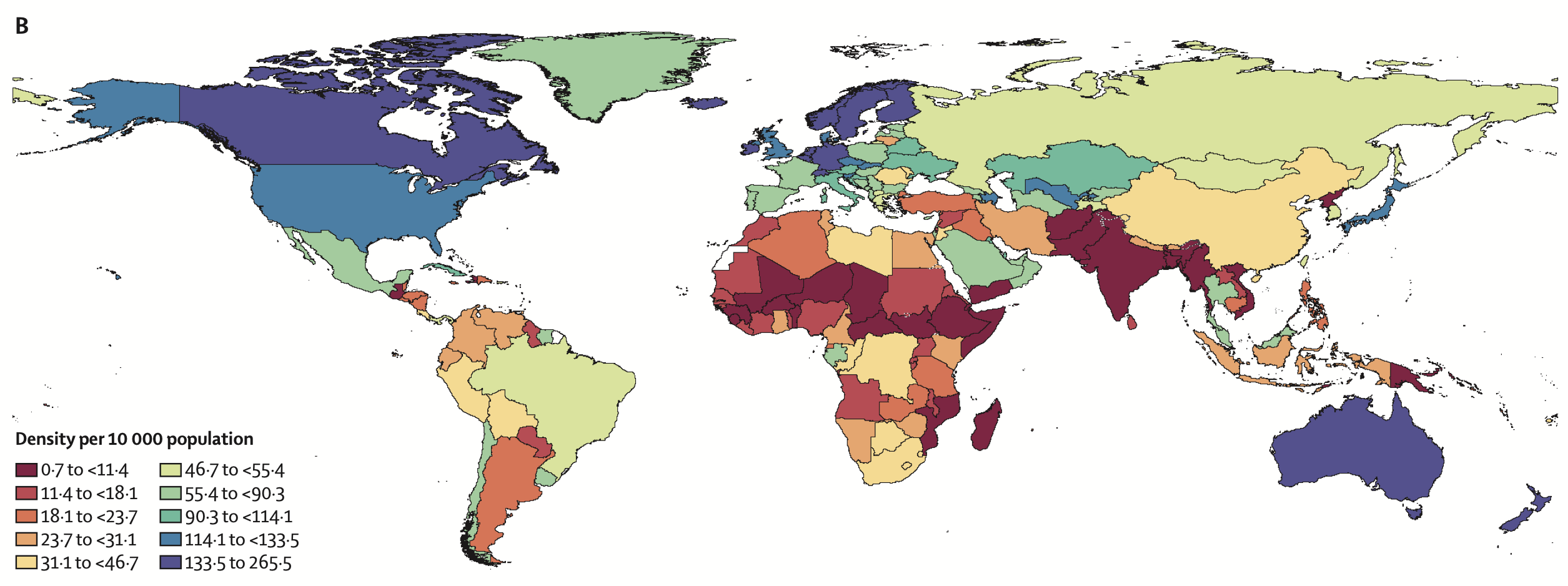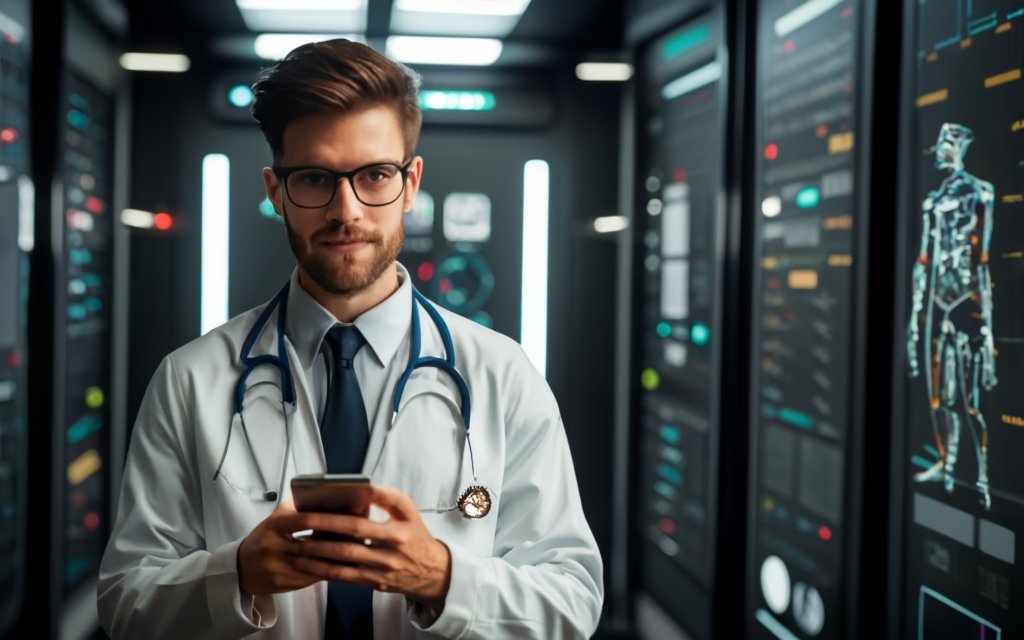Today, we can build 800-meter-tall towers, store the entirety of recorded human knowledge in a device we can hold in our hands, communicate instantly across the globe, double our lifespan, and live happy and fulfilling lives without fear, but our best friends regularly drop dead of disease. (c) Vitalik Buterin
According to the World Health Organization (WHO), there is a global deficit of 6,4 million physicians, 30,6 million nurses and midwives, 3,3 million dentistry personnel, and 2,9 million pharmaceutical personnel
The World Health Organization (WHO) estimates a projected shortfall of 10 million health workers by 2030, mostly in low- and lower-middle-income countries.
In the United States, the Department of Health and Human Services predicts a nationwide shortage of 90,000 physicians by 2025
The WHO estimates that there are only 1.13 doctors for every 1,000 people in countries facing a "Human Resources for Health crisis."

We need more advanced Medical Artificial Superintelligence (MASI), where AI surpasses physician in all aspects.
AI isn't just evolution; it's a revolution in how we interact with the very essence of knowledge and medicine.
There's a lot of evidence that the FDA is far too conservative in its willingness to delay or block the approval of drugs, and bioethics in general far too often seem to operate by the principle that "20 people dead in a medical experiment gone wrong is a tragedy, but 200,000 people dead from life-saving treatments being delayed is a statistic."
The faster we can make vaccines, the less we have to go after people for being superspreaders.
The faster we can get AI into people's hands, the faster we will solve the problem of 100% disease control.
Building tools to help people live comfortable lives is a valuable technology.
The forms of self-sufficient living may well also be turned to help improve our civilizational resilience on Earth.
Current approaches have been focusing on creating licensing schemes and regulatory requirements, trying to restrict medical or pharma development to a smaller number of people, but these have seen popular pushback precisely because people don't want to see anyone monopolize something so powerful.
Each algorithmic tweak, every dataset used, is trackable and verifiable. By encoding ethical guidelines and standards directly into AI development processes, we can ensure that AGI adheres to agreed-upon ethical norms.
AI models run on smart contracts, ensuring privacy and verifiable training processes

